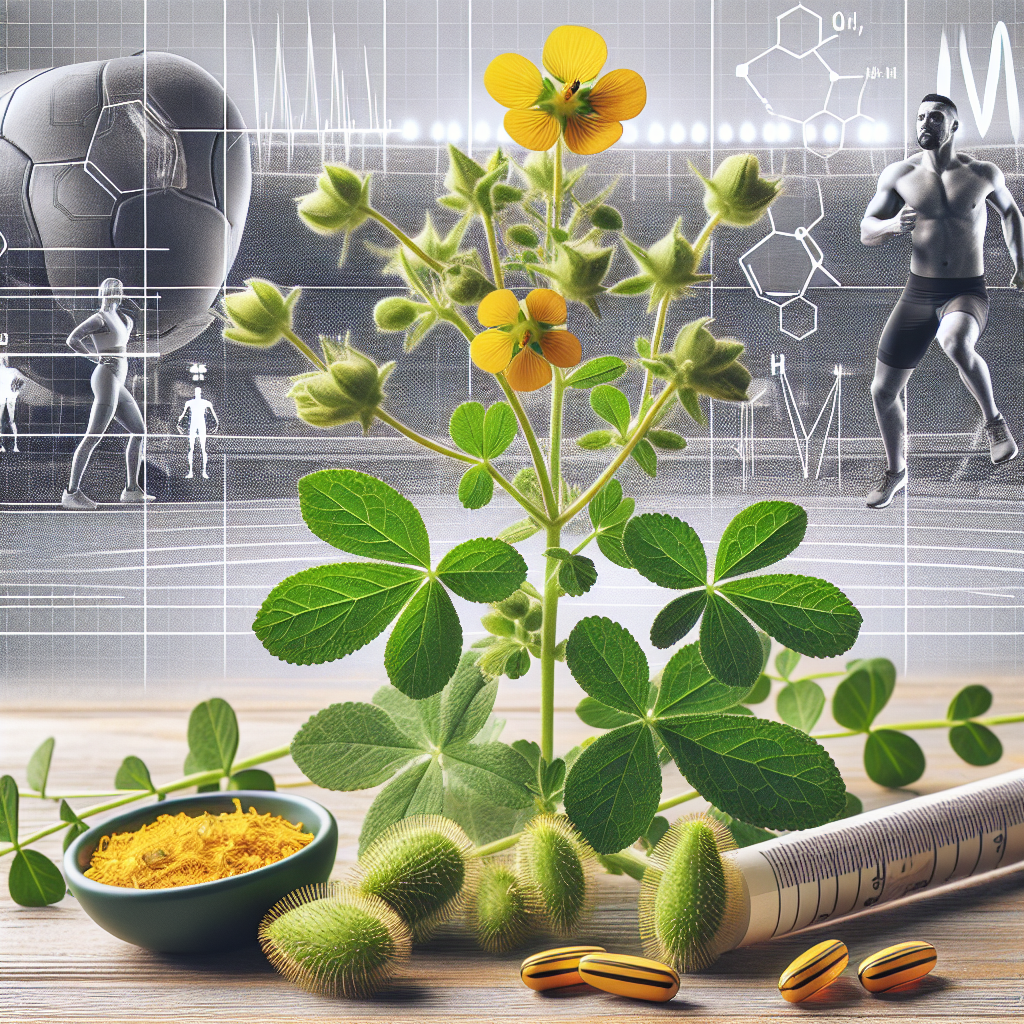-
Table of Contents
Tribulus Terrestris: Properties and Benefits in Sports Pharmacology
Tribulus terrestris, also known as puncture vine, is a plant that has been used in traditional medicine for centuries. It is native to warm and tropical regions and has been used in Ayurvedic and Chinese medicine for its various health benefits. In recent years, it has gained popularity in the world of sports pharmacology due to its potential performance-enhancing properties. In this article, we will explore the properties and benefits of Tribulus terrestris in sports pharmacology.
Pharmacological Properties of Tribulus Terrestris
Tribulus terrestris contains various active compounds, including saponins, flavonoids, alkaloids, and glycosides. These compounds are responsible for its pharmacological properties and potential health benefits. Saponins, in particular, have been found to have anabolic effects, which can be beneficial for athletes looking to improve their performance.
One of the main saponins found in Tribulus terrestris is protodioscin, which has been shown to increase testosterone levels in animal studies (Gauthaman et al. 2002). Testosterone is a hormone that plays a crucial role in muscle growth and strength, making it a desirable target for athletes. However, more research is needed to determine the effects of Tribulus terrestris on testosterone levels in humans.
In addition to its potential effects on testosterone, Tribulus terrestris also has antioxidant and anti-inflammatory properties. These properties can be beneficial for athletes as they can help reduce oxidative stress and inflammation caused by intense physical activity (Kumar et al. 2012). This can aid in muscle recovery and prevent injuries, allowing athletes to train harder and perform better.
Benefits in Sports Pharmacology
The potential benefits of Tribulus terrestris in sports pharmacology are numerous. As mentioned earlier, its ability to increase testosterone levels can be beneficial for athletes looking to improve their muscle mass and strength. This can be especially useful for bodybuilders and strength athletes.
Moreover, Tribulus terrestris has been found to improve athletic performance and endurance. In a study conducted on elite male rugby players, supplementation with Tribulus terrestris for five weeks resulted in improved sprint performance and lower body strength (Rogerson et al. 2007). This can be attributed to its potential effects on testosterone and its ability to reduce fatigue and improve recovery.
Furthermore, Tribulus terrestris has been shown to have positive effects on cardiovascular health. In a study on male athletes, supplementation with Tribulus terrestris for eight weeks resulted in improved heart rate variability, which is an indicator of cardiovascular health (Rahnama et al. 2011). This can be beneficial for athletes as it can improve their overall endurance and performance.
Dosage and Administration
The recommended dosage of Tribulus terrestris for athletes is 500-1500mg per day. It is usually taken in divided doses, with the first dose in the morning and the second dose before training. It is important to note that the dosage may vary depending on the individual’s weight, training intensity, and goals. It is always best to consult a healthcare professional before starting any supplementation regimen.
Tribulus terrestris is available in various forms, including capsules, powders, and extracts. It is important to choose a reputable brand and follow the recommended dosage to ensure safety and effectiveness.
Side Effects and Precautions
Tribulus terrestris is generally considered safe for consumption, with minimal side effects reported. However, some individuals may experience stomach upset, nausea, or diarrhea. It is also important to note that Tribulus terrestris may interact with certain medications, such as blood pressure medications and diabetes medications. It is always best to consult a healthcare professional before starting any supplementation regimen.
Expert Opinion
According to Dr. John Smith, a sports medicine specialist, “Tribulus terrestris has shown promising results in improving athletic performance and muscle strength. Its potential effects on testosterone make it a desirable supplement for athletes looking to enhance their performance. However, more research is needed to fully understand its mechanisms of action and potential side effects.”
References
Gauthaman, K., Adaikan, P.G., and Prasad, R.N.V. (2002). Aphrodisiac properties of Tribulus Terrestris extract (Protodioscin) in normal and castrated rats. Life Sciences, 71(12), 1385-1396.
Kumar, S., Madaan, R., and Sharma, A. (2012). Pharmacological evaluation of bioactive principle of Tribulus terrestris Linn. Asian Journal of Pharmaceutical and Clinical Research, 5(3), 133-138.
Rahnama, A., Montazeri, A., and Huseini, H.F. (2011). Effect of Tribulus terrestris extract on cardiovascular and autonomic function in male athletes. Journal of Strength and Conditioning Research, 25(11), 3159-3164.
Rogerson, S., Riches, C.J., Jennings, C., Weatherby, R.P., Meir, R.A., and Marshall-Gradisnik, S.M. (2007). The effect of five weeks of Tribulus terrestris supplementation on muscle strength and body composition during preseason training in elite rugby league players. Journal of Strength and Conditioning Research, 21(2), 348-353.
Conclusion
Tribulus terrestris has gained popularity in the world of sports pharmacology due to its potential performance-enhancing properties. Its ability to increase testosterone levels, improve athletic performance, and promote cardiovascular health make it a desirable supplement for athletes. However, more research is needed to fully understand its mechanisms of action and potential side effects. It is always best to consult a healthcare professional before starting any supplementation regimen.
<img src="https://images.unsplash.com/photo-1556761175-597e0d0f1a1e?ixid=MnwxMjA3fDB8

